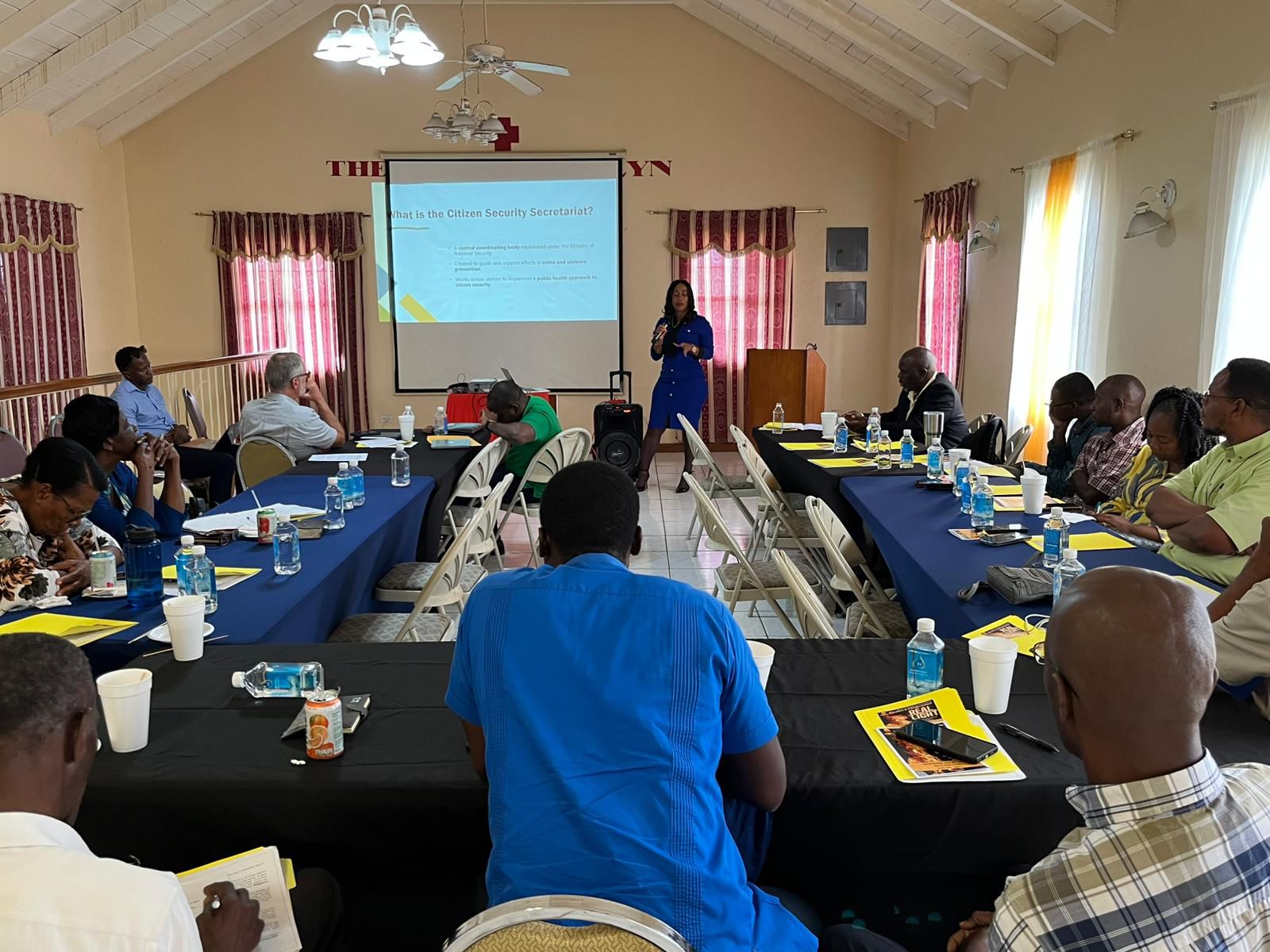Citizen Security Secretariat Reports Significant Homicide Reduction and Enhanced Community Engagement
The Citizen Security Secretariat (CSS) of St. Kitts and Nevis, under the leadership of Prime Minister Dr. Terrance Drew, maintained a robust community engagement strategy throughout July 2025, building upon the government’s public health-focused approach to crime prevention. This proactive strategy has contributed to a significant 76% reduction in homicides over the past year, marking a substantial achievement in enhancing national safety and security. The CSS’s approach recognizes that crime is a complex issue stemming from social imbalances, requiring multifaceted interventions that go beyond traditional punitive measures. Instead, the Secretariat focuses on addressing the root causes of crime through community engagement, youth empowerment, and collaboration with various stakeholders.
A key element of the CSS’s July activities involved direct engagement with youth. On July 28th, CSS Coordinator Eartha Carey and Research Analyst and Public Health Consultant Hance Richards participated in the Royal St. Christopher and Nevis Police Force’s (RSCNPF) 3rd Annual Crime Intervention Summer Soccer Camp. This provided a platform to interact with young participants, fostering dialogue on citizen security, youth responsibility, and the vital role of community unity in violence reduction. The soccer camp, which commenced on July 21st, represents one of several national initiatives designed to guide at-risk youth towards positive life choices and steer them away from criminal activities. By investing in youth development and providing alternative pathways, the CSS aims to break the cycle of violence and build a more secure future for the Federation.
Beyond youth engagement, the CSS prioritized outreach to faith-based organizations and national security leaders. Earlier in July, Carey and Richards delivered presentations to the Antioch Baptist Church Prayer Group and the Pastors’ Conference on Nevis. These engagements leveraged the influence of religious leaders within the community to disseminate information about citizen security and equip them with evidence-based strategies for promoting safety and resilience within their congregations. Recognizing the crucial role of law enforcement in crime prevention, the CSS also engaged with members of the RSCNPF High Command, facilitating dialogue and collaboration on effective security strategies.
The CSS’s holistic approach, which combines community engagement, youth development, and collaboration with faith-based organizations and law enforcement, has garnered significant praise from Prime Minister Dr. Terrance Drew. He commended the Secretariat’s dedication and the tangible results achieved in reducing crime rates. The Prime Minister emphasized that the CSS’s work is integral to the government’s broader violence prevention framework, which prioritizes addressing the underlying socioeconomic factors contributing to crime. This comprehensive strategy has not only yielded positive outcomes within St. Kitts and Nevis but has also attracted regional attention.
The success of the CSS’s initiatives has sparked interest from neighboring countries, including Anguilla, which engaged in high-level discussions with the St. Kitts and Nevis government to understand the strategies employed in achieving such significant crime reductions. This regional recognition highlights the effectiveness of the CSS’s data-driven and public health-centered approach, positioning St. Kitts and Nevis as a model for other nations seeking sustainable solutions to crime and violence. The CSS’s focus on proactive interventions, community engagement, and addressing the root causes of crime has proven to be a successful formula for enhancing citizen security.
In conclusion, the Citizen Security Secretariat’s multifaceted approach, encompassing youth engagement, community outreach, and collaboration with key stakeholders, has yielded remarkable progress in reducing crime rates in St. Kitts and Nevis. The Secretariat’s commitment to addressing the socioeconomic drivers of crime, combined with its data-driven strategies, has not only enhanced national security but also gained regional acclaim. The CSS’s success serves as a compelling example for other nations seeking sustainable and effective approaches to crime prevention and citizen security, demonstrating the power of proactive interventions and community-based solutions in creating safer and more resilient societies.
Share this content:












Post Comment